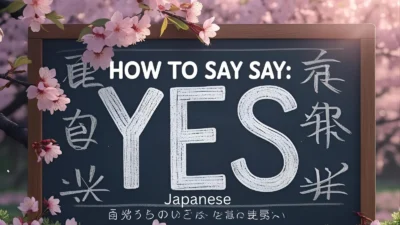Learning how to say thank you in Vietnamese is one of the most important steps to showing respect and politeness in the language.
The most common phrase is cảm ơn (pronounced “gahm un”), but depending on the situation, you can make it more formal or casual.
By understanding these variations, you’ll be able to express gratitude naturally and connect better with Vietnamese speakers.
Say Thank You in Vietnamese
👍 Here’s a 15-phrases table for How to Say Thank You in Vietnamese with meanings and contexts:This table covers formal, polite, casual, and heartfelt ways to say thank you in Vietnamese.
15 phrases table for How to Say Thank You in Vietnamese
| # | Vietnamese Phrase | Pronunciation (Approx.) | English Meaning | Usage / Context |
|---|---|---|---|---|
| 1 | Cảm ơn | gahm un | Thank you | Standard, most common way. |
| 2 | Cảm ơn bạn | gahm un ban | Thank you, friend | Polite, used with peers. |
| 3 | Cảm ơn anh | gahm un ang | Thank you (to older male) | Polite/respectful. |
| 4 | Cảm ơn chị | gahm un chee | Thank you (to older female) | Polite/respectful. |
| 5 | Cảm ơn em | gahm un em | Thank you (to younger person) | Polite, warm tone. |
| 6 | Xin cảm ơn | sin gahm un | Thank you (formal) | Used in speeches, business. |
| 7 | Chân thành cảm ơn | chun thàn gahm un | Sincere thanks | Formal, heartfelt. |
| 8 | Vô cùng cảm ơn | vo kung gahm un | Thank you very much | Strong gratitude. |
| 9 | Cảm ơn nhiều | gahm un nyiew | Thanks a lot | Informal, friendly. |
| 10 | Cảm ơn rất nhiều | gahm un rut nyiew | Thank you very much | Emphasized gratitude. |
| 11 | Đa tạ | da ta | Many thanks | Very formal, literary. |
| 12 | Biết ơn | byet un | Grateful / I’m grateful | Deep, sincere. |
| 13 | Xin đa tạ | sin da ta | Thank you respectfully | Formal, respectful tone. |
| 14 | Trân trọng cảm ơn | chun chọng gahm un | Respectful thanks | Business, official contexts. |
| 15 | Ngàn lần cảm ơn | ngan lun gahm un | A thousand thanks | Poetic, very heartfelt. |
1. Cảm ơn
Meaning: Thank you
Origin:
“Cảm” means “to feel” and “ơn” means “grace” or “kindness.” Together, cảm ơn literally means “to feel grateful.” This is the standard and most widely used phrase.
Example:
👤 User A: Đây là món quà cho bạn. (This is a gift for you.)
👤 User B: Cảm ơn! Thật tuyệt vời. (Thank you! That’s wonderful.)
Use: General and polite; suitable in almost every situation.
2. Cảm ơn bạn

Meaning: Thank you (to a peer or friend)
Origin:
Adds “bạn” meaning “you (friend)” for slightly more directed and personal gratitude.
Example:
👤 User A: Mình đã giúp bạn làm xong bài tập. (I helped you finish your homework.)
👤 User B: Cảm ơn bạn rất nhiều! (Thank you so much!)
Use: Friendly, respectful; used between peers.
3. Cảm ơn anh / chị
Meaning: Thank you (to a man/woman older or higher in status)
Origin:
In Vietnamese, addressing someone by their appropriate pronoun (anh for older male, chị for older female) is crucial to show respect.
Example:
👤 User A: Anh mua cà phê cho em rồi. (I bought you coffee.)
👤 User B: Cảm ơn anh nhiều nhé! (Thanks a lot!)
Use: Polite and respectful; good for coworkers, older friends.
4. Em cảm ơn

Meaning: (Younger person saying) Thank you
Origin:
Used by someone younger to show gratitude while placing themselves in a respectful lower position.
Example:
👤 User A: Cô giáo tặng sách cho em. (Teacher gave me a book.)
👤 User B: Em cảm ơn cô! (Thank you, teacher!)
Use: Polite, used by children/students or anyone younger.
5. Con cảm ơn
Meaning: (Child saying) Thank you
Origin:
“Con” is the pronoun for a child in relation to older adults.
Example:
👤 User A: Bà nấu món ăn con thích. (Grandma cooked your favorite dish.)
👤 User B: Con cảm ơn bà! (Thank you, Grandma!)
Use: Respectful and affectionate; often used by children to elders.
6. Cháu cảm ơn

Meaning: (Young person to elder) Thank you
Origin:
“Cháu” is used by young people when addressing grandparents or older relatives.
Example:
👤 User A: Ông cho cháu tiền lì xì. (Grandpa gave lucky money.)
👤 User B: Cháu cảm ơn ông nhiều ạ! (Thank you very much, Grandpa!)
Use: Very polite; good for family or formal interactions.
7. Cảm ơn nhiều
Meaning: Thanks a lot
Origin:
“Nhiều” means “a lot,” turning this into a more enthusiastic thank you.
Example:
👤 User A: Tôi đã hoàn thành việc giúp bạn rồi. (I finished the task for you.)
👤 User B: Cảm ơn nhiều nha! (Thanks a bunch!)
Use: Friendly and warm.
8. Cảm ơn rất nhiều
Meaning: Thank you very much
Origin:
Adds “rất” (very) to intensify the phrase — commonly used when you want to show deeper gratitude.
Example:
👤 User A: Tôi đã gửi tài liệu bạn cần rồi. (I sent the documents you needed.)
👤 User B: Cảm ơn rất nhiều! Tôi biết ơn lắm. (Thank you so much! I really appreciate it.)
Use: Sincere, for strong appreciation.
9. Xin cảm ơn
Meaning: Thank you (more formal)
Origin:
“Xin” adds politeness, similar to saying “please” or “kindly.”
Example:
👤 User A: Đây là cơ hội làm việc cho bạn. (This is a job opportunity for you.)
👤 User B: Xin cảm ơn anh đã giới thiệu. (Thank you kindly for the introduction.)
Use: Formal, often used in business or official settings.
10. Cảm ơn quý khách
Meaning: Thank you, valued customer
Origin:
Common in hospitality and customer service, showing high respect to clients.
Example:
👤 User A (Store Clerk): Cảm ơn quý khách, hẹn gặp lại! (Thank you, valued customer! See you again!)
👤 User B: Cảm ơn bạn! Dịch vụ rất tốt. (Thank you! Great service.)
Use: Business and service industry.
11. Cảm ơn vì…
Meaning: Thank you for…
Origin:
Used when expressing thanks for something specific. “Vì” means “because of” or “for.”
Example:
👤 User A: Tôi đã làm giúp bạn rồi. (I did it for you.)
👤 User B: Cảm ơn vì đã giúp tôi! (Thanks for helping me!)
Use: Great for expressing specific gratitude.
12. Cảm ơn trời đất
Meaning: Thank heavens / Thank God
Origin:
Literally “thanks to heaven and earth” — shows spiritual or emotional relief.
Example:
👤 User A: Bác sĩ nói mẹ bạn đã ổn rồi. (The doctor said your mom is okay now.)
👤 User B: Cảm ơn trời đất! Tôi lo lắng lắm. (Thank heavens! I was so worried.)
Use: Emotional, sometimes dramatic.
13. Đội ơn
Meaning: Deepest thanks (old-fashioned)
Origin:
A formal and poetic way to express deep gratitude, now rarely used in casual speech but seen in traditional or ceremonial contexts.
Example:
👤 User A: Cụ giúp đỡ gia đình tôi rất nhiều. (You helped my family a lot.)
👤 User B: Tôi xin đội ơn cụ. (I am deeply grateful, sir.)
Use: Very formal, respectful; used in written form or formal gratitude.
14. Biết ơn
Meaning: To be grateful
Origin:
“Biết” = to know, “ơn” = grace — meaning “to know kindness.” Often used to express long-term gratitude.
Example:
👤 User A: Thầy đã dạy tôi rất nhiều điều. (You taught me so much.)
👤 User B: Em thật sự biết ơn thầy. (I’m truly grateful to you, teacher.)
Use: Emotional, used in writing or sincere speech.
15. Cảm ơn nha / nhé
Meaning: Thanks (with friendliness or softness)
Origin:
“Nha/nhé” softens the sentence — common in southern dialects and among friends.
Example:
👤 User A: Mình đã đặt bàn cho chúng ta rồi. (I booked the table for us.)
👤 User B: Cảm ơn nha! Mình rất mong chờ. (Thanks! I’m excited.)
Use: Casual, cheerful, southern tone.
FAQs
- What is the common way to say thank you in Vietnamese?
The most common phrase is “Cảm ơn” (pronounced gahm un). - Is “Cảm ơn” formal or informal?
It’s neutral — polite enough for most situations. - How do you say thank you very much in Vietnamese?
You can say “Cảm ơn nhiều” (thank you very much). - How do you pronounce “Cảm ơn”?
It’s pronounced gahm un, but with a rising tone on ơn. - Can I just say “Ơn” for short?
No — that would sound incomplete. Always say “Cảm ơn.” - How do you thank someone formally in Vietnamese?
Say “Xin cảm ơn” — it’s a more polite version. - How do you thank a friend casually?
You can simply say “Cảm ơn nhé” (thanks!). - What’s the northern and southern difference in pronunciation?
In the north, it sounds like gahm un; in the south, more like gahm uhn. - How do you respond when someone says thank you?
Say “Không có gì” — it means you’re welcome. - Is “Cảm ơn” used in both spoken and written Vietnamese?
Yes, it’s used in both everyday talk and writing.
Conclusion:
Mastering how to say thank you in Vietnamese is a meaningful way to show respect and build stronger connections with native speakers. From the simple cảm ơn to more formal expressions like xin cảm ơn or trân trọng cảm ơn, each phrase helps you express gratitude in the right context.By practicing these variations, you’ll sound more natural, polite, and culturally aware in every Vietnamese conversation.

Sophia Mitchell is a passionate content writer known for creating clear, engaging, and informative articles.
She focuses on delivering well-structured content that is easy for readers to understand and trust.
Sophia Mitchell currently contributes quality writing to repliesnest.com, helping readers find accurate answers quickly.



